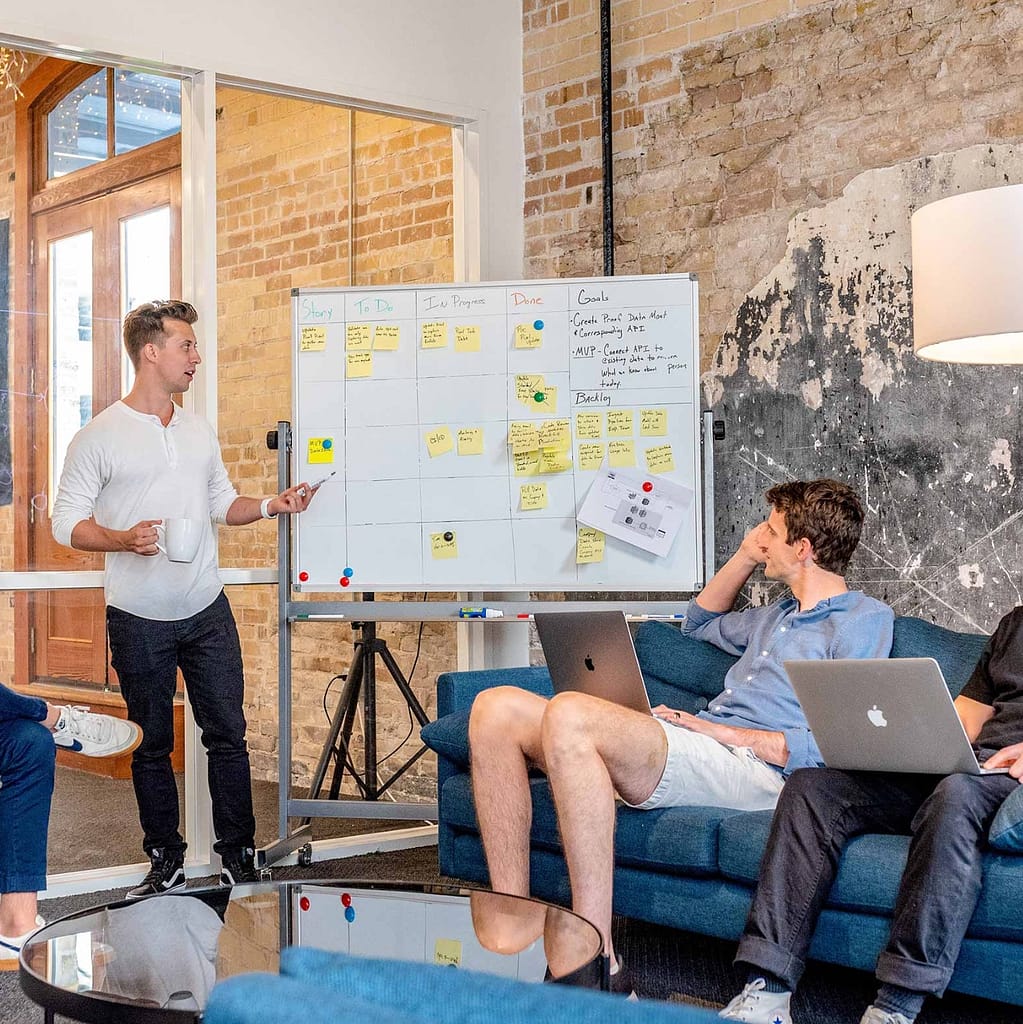We’re on a bit of a mission to uncover the real evidence about what works in workplace learning, with a laser focus on outcomes/impact driving our obsession.
You see, we think there’s loads of opportunity to improve the way the industry plan and deliver learning and development, and support leaders of organisations to thrive. And we’re a little wary of seductive, shiny new things that distract us from what’s at the core (can you guess what we might be referring to there?).
Thorny question one: Synchronous or Asynchronous? Virtual or live? (we currently believe synchronous is more impactful, but there’s actually very little research been carried out in workplace learning)
Thorny question two: Content or Context (this has been an ever-present in our approach – we have always believed that application in context is key. And the evidence increasingly backs this up)
Thorny question three: Short or Long? (We’ve long believed in longer, more sustained learning programmes that allow spacing, reflection, generation, and other good stuff – see Dr Philippa Hardman article linked to below)
A recent blog post from Dr. Philippa Hardman has piqued our interest, and it offers some valuable insights into some of these thorny questions, emphasising the importance of the application of learning and the effectiveness of sustained learning over one-off interventions.
You can read the original post here
And the research on which it was based can be found here
We thought we’d share some key takeaways from the blog that leaders in medium and large businesses, as well as L&D and leadership training decision-makers, should consider.
Application of Learning is Critical
One of the main points highlighted is that for learning to be effective, it must be applied. This means that theoretical knowledge alone is insufficient; practical application is essential. Here’s why this matters:
- Enhanced Retention: When learners apply what they’ve learned in real-world scenarios, they are more likely to retain the information. This practical engagement reinforces memory and understanding.
- Improved Skills: Application allows learners to develop and refine their skills. By practising new concepts, they can identify areas for improvement and achieve mastery.
- Immediate Feedback: Applying learning in practical contexts provides immediate feedback, helping learners understand what works and what doesn’t, and adjust accordingly.
How this insight is reflected in our own learning design and delivery:
We learn more from doing and even more from applying it to our own context, than we do from listening, reading, and /or watching, and we embed that in our learning design. Application frameworks and tools provide the basis of our leadership programmes and workshops, with participants working on real-life business challenges.
Sustained Learning is More Effective than One-Off Interventions
The research also emphasises the superiority of sustained learning over one-off interventions. Sustained learning involves continuous engagement and reinforcement, which leads to deeper understanding and long-term retention. Here’s why sustained learning is crucial:
- Long-Term Retention: Continuous learning helps embed knowledge in long-term memory, making it more accessible and usable over time.
- Behavioural Change: Sustained learning promotes gradual behavioural change, which is more effective than expecting immediate transformation from a single training session.
- Continuous Improvement: Ongoing learning encourages a culture of continuous improvement and adaptability, which is vital in today’s dynamic business environment.
How this insight is reflected in our own learning design and delivery:
We’re an evidence-based organisation, and the research is clear that varied programmes, sustained over time, improve behaviour change and knowledge retention. Our leadership programmes are designed to be delivered over time, with opportunities for reflection, application and action to be taken, to ensure the best outcomes for leaders. While our workshops can work as a standalone session, we prefer a sustained approach, over time vs one-off interventions
Conclusion
Understanding how humans learn and applying these principles can significantly enhance the effectiveness of leadership and development programs. By focusing on the application of learning and embracing sustained learning strategies, leaders can foster a more knowledgeable, skilled, and adaptable workforce.
We’re not done there – we have loads to say on this topic – not the least of which is about contextualising learning to the reality of the organisation, but also the effectiveness of synchronous vs asynchronous learning. If you want to keep in touch with us on this, please sign up to our newsletter here, or drop us a note.
At Cognitive Union, we are dedicated to helping leaders and organizations implement effective learning strategies. Explore our programs to discover how we can support your journey towards better learning and development practices.

